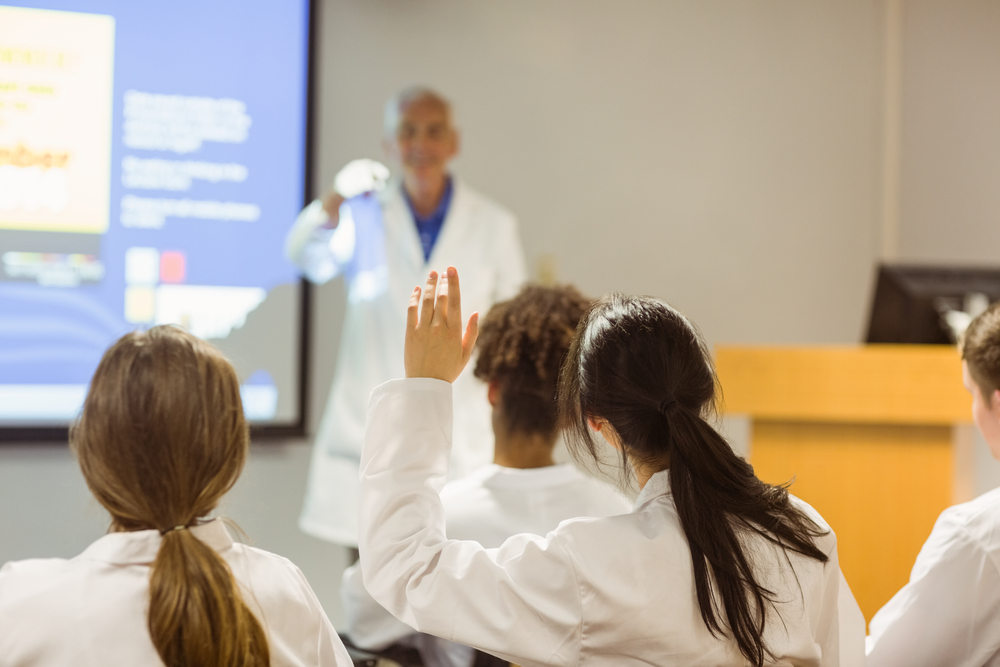
Many years ago, in a former life, I taught high school biology. The first day, I told my students that they could use their textbooks or any book to take any test that I would I give. They were surprised, and most thought that class would be very easy despite my explanations that it would not be. They were surprised again when they found that it was not as easy as they thought. This was because I asked them to think and reason with the information at hand.
Study was still necessary. In the real world, one can look up a wealth of information. Some of it has more validity, while others do not. It is the ability to evaluate, test, and reason with that information that is of value. That is what I tried to teach using the basic facts of science as a backdrop for developing a thoughtful approach to understanding scientific problems and other issues. For example, I would ask them how one might approach developing a novel cancer treatment or investigating the effects of oxygen depletion in the oceans on the environment and human health.
One might think that this was too much for high school students. It was not. Many of them responded with a college level of understanding. Even students, who others said were lost causes, were able to understand. Given the right approach, learning and solving problems are rewarding for most people. Providing an approach to solving problems is far more beneficial than handing out a list of information to memorize. This reminiscing led me back to the present, and how some of us may sell short those who do not agree with or understand our positions.
Science is a systematic quest for truth. It strives to search for unbiased facts that can be tested and verified. Truth and verifiable information are of value to everyone. The discoveries of science make our lives better in a multitude of ways ranging from cures for diseases to increased food supplies. Of course, one may argue about many things, but the facts behind these debates should hopefully be less contentious. This is especially the case when those facts are open to verifiable and reproducible testing.
For most scientists, the hope is that their search for truth will ultimately benefit society. The fruits of that search becomes evident through publications, presentations at scientific meetings, and eventually perhaps as a more effective drug, a safer and more efficient battery, faster internet speeds, etc. For many of us that is enough. We do our work and experimentally test its validity. We may be recognized by our peers, and over time our discoveries may have a positive impact upon society, but is that enough? Should we expect more of ourselves?
The pursuit of truth through science has both intrinsic and practical value. However, the value of that truth is less impactful if it is not actively shared. Society is experiencing many difficult issues and their solutions require the types of unbiased information that science can provide. Our work is valuable. Its value increases if it is communicated and acted upon.
From Galileo to the present, the sharing of scientific information is not without its challenges. It may take courage to share information in the face of fear and confusion. With our increasing reliance on science and technology, a widespread basic understanding of scientific processes is even more necessary. Most people are more than capable of that understanding if given the opportunity. Once that understanding is achieved, this methodology can be applied to most of the problems that we face.
Sharing and learning are likely to be more effective if approached with the goal of seeking truth and mutual benefit rather than winning an argument. Effective sharing and communication require empathy and patience. This is not easy to achieve, but it is likely to yield more than confrontation or attitudes of superiority. A good starting point may be to understand that most of us are trying to do the best we can with our current knowledge.
On a societal level, supporting an educational system that values the scientific method over memorization benefits everyone. Scientific methodology should not just be the province of scientists. Reason and a search for truth should not be confined to the laboratory. By making the scientific method part of the curriculum as mentoring and listening to one another, we all benefit. Science can help to address many of the ills of this world if we make it a tool that is available to everyone.




